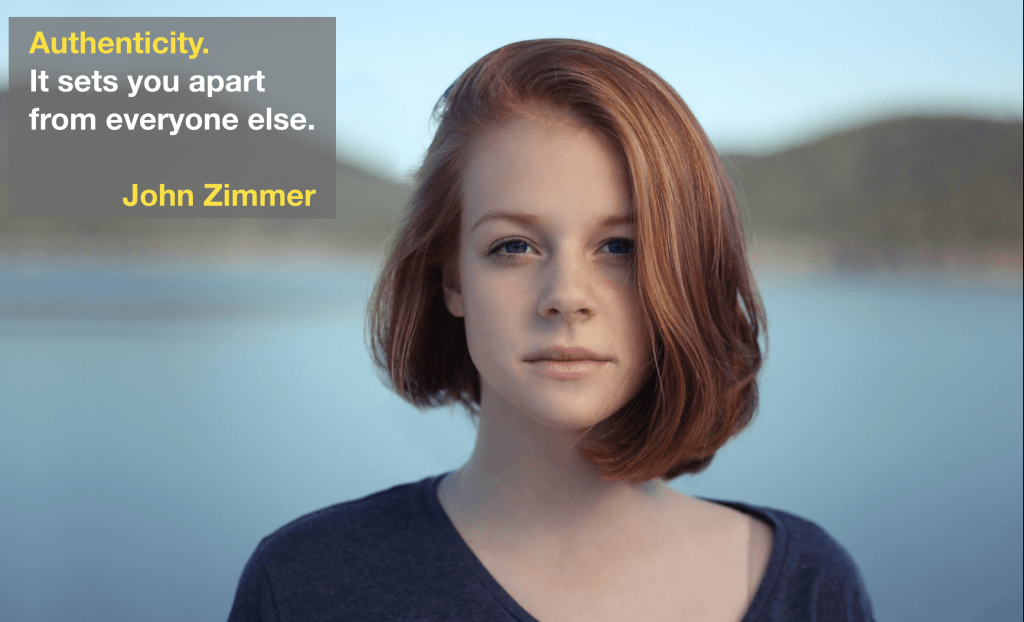
The temptation to be like others is strong. But if we always try to fit in, we will never stand out. We become just one more slice of bread in one more bland, homogenized loaf. And there are millions of bland loaves of bread out there. Good luck getting noticed while sitting on the same shelf.
A key concept in marketing is the unique selling proposition, or USP.
A unique selling proposition (USP) refers to the unique benefit exhibited by a company, service, product or brand that enables it to stand out from competitors.
You also have a unique selling proposition: You.
Nobody else has your experiences or insights or points of view. Nobody else has your style or strengths or weaknesses. You are unique. That’s what authenticity is all about. You should not try to cover it up, as the following story illustrates.
A lesson from the world of art
In the video below, renowned art expert Philip Mould discusses a fascinating painting of Vice-Admiral Horatio Nelson by the Italian painter Leonardo Guzzardi. What makes the painting fascinating is that, unlike many of his contemporaries, Guzzardi did not try to make Nelson look perfect. Instead, he showed the scars that Nelson had received on his forehead in the Battle of the Nile.
During the twentieth century, a restorer painted in Nelson’s lost right eyebrow, perhaps thinking it was a mistake. However, Nelson was actually missing an eyebrow because of a head wound and it was a key part of Guzzardi’s original portrait.
When Mould obtained the painting, he had it restored, stating:
This was like reversing plastic surgery to reveal lost history. Seeing the scar emerge was a remarkable moment – Nelson the human replaced the more heroic projection. It was not uncommon for unsophisticated restorers in the last century to believe they were “improving” original works with their own paint brush, only to disguise their authenticity and distinction in the process.
When you are authentic, when you are willing to share the real you with us — the highs and the lows — that’s when you stand out; that’s what sets you apart from other people. Because we are interested in you, flaws and all.
Having authenticity doesn’t mean that we’ll always agree with you or even like you. Many people won’t. But if you are trying to please everyone, you will likely end up pleasing no one. Better to be true to your audience and yourself.
Don’t be a duplicate of someone else. Share your ideas and be yourself because, as Oscar Wilde said, everyone else is already taken.
















6 Replies to “Authenticity”
Great message, John – truly inspiring!
Thanks, Craig!
Society, as a whole, discourages difference. I wish more would embrace it.
Couldn’t agree more. When I was practising law in Toronto, Canada, the Law Society passed a regulation saying that law firms interviewing student candidates were prohibited from asking about a student’s ethnic background. I fully understood the important reasoning behind the regulation — there had been documented incidents of outrageous discrimination — but I still found it sad that we had reached a point where it was no longer permissible to show genuine curiosity about something so fundamental to who we are.
Thanks for the comment.